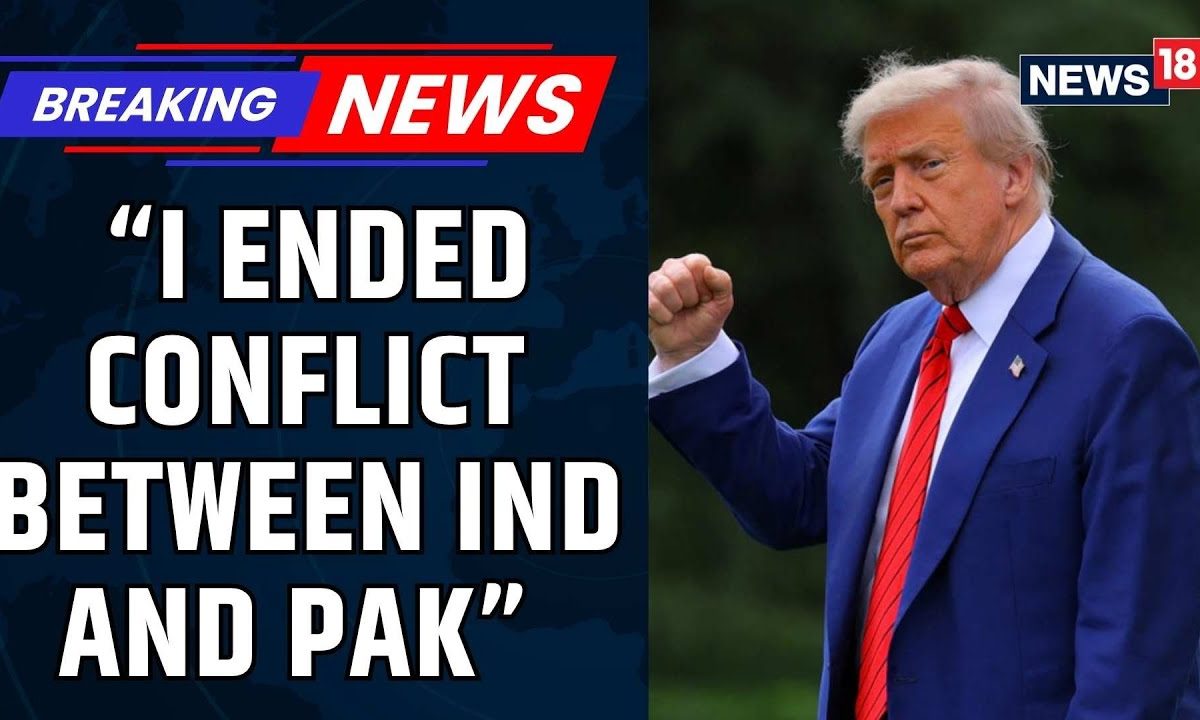

In recent news, former U.S. President Donald Trump has reiterated his claim that he played a pivotal role in de-escalating tensions between India and Pakistan, potentially averting a larger conflict. This assertion comes after a period of heightened tensions between the two nuclear-armed nations, marked by military clashes and diplomatic strain.
Trump's statement, made during a recent address, echoed previous claims that his intervention was instrumental in bringing about a ceasefire. He stated that he had communicated with leaders from both India and Pakistan, emphasizing the potential repercussions for trade relations with the United States if hostilities continued. According to Trump, he made it clear that the U.S. would not engage in trade deals with either country if they were engaged in conflict. He suggested that this stance prompted both nations to reconsider their actions and ultimately agree to a ceasefire. He also mentioned Pakistan's Army Chief, Asim Munir, was in his office the previous week.
However, India has consistently maintained that the ceasefire understanding was the result of direct talks between the Directors General of Military Operations (DGMOs) of the two countries. This position emphasizes a bilateral approach to resolving the conflict, downplaying the role of external mediation. In fact, during a phone call with Trump, Indian Prime Minister Narendra Modi reportedly stated firmly that India does not and will "never accept" mediation and that the discussions between Indian and Pakistani militaries on cessation of military actions were initiated at Islamabad's request.
The conflict between India and Pakistan in May 2025 followed a terrorist attack in Indian-administered Kashmir, which resulted in multiple casualties. India responded with military strikes against what it claimed were militant infrastructure facilities within Pakistan. Pakistan retaliated, leading to cross-border firing and escalating tensions. The situation raised concerns internationally, given the nuclear capabilities of both nations.
While Trump's supporters have lauded his intervention as a demonstration of his diplomatic skills, critics have questioned the accuracy and significance of his claims. Some analysts suggest that while external pressure may have played a role, the primary impetus for de-escalation came from the direct engagement between the two countries' military establishments.
The India-Pakistan relationship remains complex and fraught with challenges. Despite the ceasefire, underlying issues such as cross-border terrorism and territorial disputes continue to be sources of tension. The suspension of the Indus Waters Treaty by India further exacerbates these challenges.
Looking ahead, the path to lasting peace between India and Pakistan will likely require sustained dialogue, confidence-building measures, and a commitment to addressing the root causes of conflict. While external actors may play a supportive role, the primary responsibility for building a stable and peaceful relationship rests with the two nations themselves. Whether or not Trump's version of events is accurate, the situation underscores the critical importance of diplomacy and conflict resolution in a region with a history of volatility.